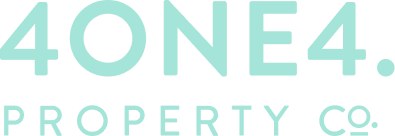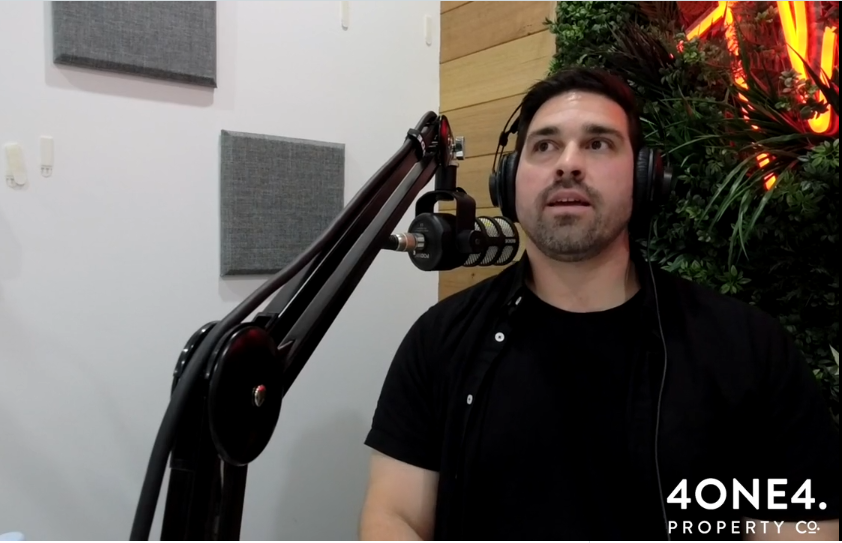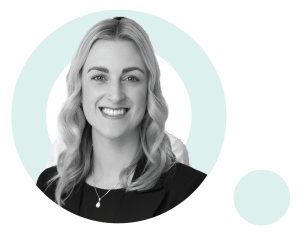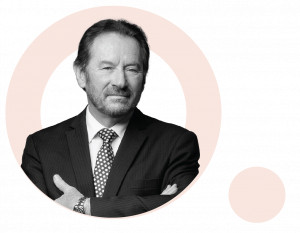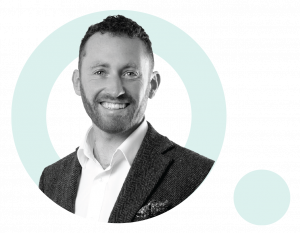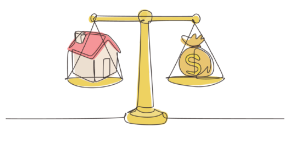Property investing is not an overnight process. Behind the passive and lucrative nature of this are various contemplations and solid decision-making. But as the famous saying goes, “fortune favours the bold”. So if you’re willing to take the risk, we’re here to help you mitigate any possible negative consequences.
Just like any other businesses, real estate investing requires a lot of work. There’s always a rainbow after the rain, but only if you’re willing to do the ‘work’. You’re perhaps drawn to this idea already but if you don’t know yet where to start, just continue reading…
In a recent episode of 4one4’s own podcast, The Property Pod, the team spoke with Chris Sierzant, a Tasmanian property investor who started his journey into investing in real estate just two years ago in 2020. In a span of just 22 months, Chris already manages 6 properties and has undertaken 4 renovations. Like many other investors before him, Chris can concede that the process wasn’t all smooth sailing. He’ll be the first to admit that he made some mistakes along the way, but as a good investor, he stood resilient and learnt from all these encounters. Constantly levelling up his understanding and Portfolio as he went along.
Professionally, Chris is a project manager in the health literacy area with a background in community services for 15 years. Trying to break free from his bad relationship with money during his younger years, he planned to achieve capital growth and cash flow, all while helping people through shelter. And VIOLA–he found his spark in property investing!
![4one4 Property Co | Property Investing | [from left to right] John McGregor, Chris Sierzant, and Patrick Berry during the recording of The Property Pod](https://www.4one4.com.au/wp-content/uploads/2022/04/PXL_20220217_230209997-1024x768.jpg)
When we spoke with him, Chris shared three fundamental things that you should consider if you’re after real estate investing.
Plan
Start with your why! According to Chris, you need to initially determine your end goal to know how you need your property to perform. And from there, you can come up with a plan or structure that will help you see the end in the beginning.
“I think of it like a roadmap–a treasure map to help you find your gold.”
“Think of it in the same way a company is set up. A company should have Values and a Mission Statement. Your property roadmap should be similar. Writing it down will also help you think like a business,” Chris explained.
There are many reasons to get into investing; some will say it is to have more quality time with family or with the things they love. Others are after financial freedom; while some look at it as a break from the 9 to 5. According to Chris, identifying your reason is very important. He revealed that you’ll encounter heaps of rough roads along the way and sometimes, you might question yourself for doing this. If you have a solid reason, you can always come back to your WHY. It will keep you focused and on track.
The steps you take after this will be aligned with your goal. But if you wish to move beyond 1-2 properties, you need to fully understand first the relationship between capital growth and cash flow. Capital growth is when a property increases in value while cash flow refers to how much income it’s generating.
Among loads of strategies out there, Chris highlighted this time-tested method of getting some equity out of the property. “In an ideal world, the only deposit you should be putting down is the one for your first property. You want growth from each property, to springboard to the next,” he discussed.
Markets lift up property prices. If it goes up, Chris said you can pull out that equity. Apparently, when you’re in a slow market, you need to find ways to accelerate, perhaps, by looking for something you can add value to. But if your property is fully renovated and maxed out, Chris advised being patient until the market itself does the lifting.
Another side that Chris wanted to stress is cash flow. When you’re thinking of lending money for a new purchase, the most practical idea is to cover your expenses through your rental income. But always take note of the rental yield and for a good cash flow, one probably needs around 5-6%.
When planning, you need to consider both capital growth and cash flow. Equally essential, you have to look for a balance between the two. “Most people can service mortgages of 1-2 properties. And if they’re having difficulties getting past that, it’s either that they don’t have enough equity to pull out to fund the next purchase (capital growth), or they don’t have the income to service the next purchase (cash flow).”
Budget
Remember that your goals could not be locked in and should be fluid and flexible. But now that you have already identified them, it’s time to move forward to your most significant numbers.
When you talk to finance professionals, it’s a good idea to have a basic understanding of the concept already. In general, advisors are present to provide advice, but ultimately, you’ll still be responsible for your own purchases. You’ll also be the one to draw the structure of your personal portfolio.
“Another important reason for educating yourself is because it empowers you,” Chris explained. “There are only a few professions that are able to give specific financial advice, and that’s because they’re licensed to do that,” he continued.
Nobody understands your financial situation better than yourself. Hence, Chris advised starting investors to not fully outsource professionals. You need to understand your position, and by “understand”, you must comprehend it well.
Despite this, you still need the assistance of others to have a successful property journey. You must recognise those who you think will be helpful along the process. May it be an accountant, a solicitor or a conveyancer, a mortgage broker, or a buyer’s agent if you wish to outsource the research and finding of properties.
When you’re already on the journey, Chris shared that you might also meet other people who are not directly involved in your purchasing but might help you.
“Develop good relationships with a local real estate agent because the good ones will motivate you to move forward.”
In terms of the budget itself, the conversation is between you and your lender or mortgage broker. Good mortgage brokers, as Chris described, will take time to sit down with you and put together a big game of plan. This will greatly help you in structuring your portfolio.
Educate
At this point, you’re now getting ready to go out and look for prospective properties. But before you do so, make sure you’re knowledgeable enough about the market and the industry in general. You can actually do this while your broker or lender is crunching numbers on the other side.
What’s great here is that heaps of resources are available online. But, Chris wants you to be cautious because there’s a lot of noise around there. You need to look for reputable data sources. Chris shared how he listened to various podcasts and joined different Facebook groups to widen his knowledge about properties.
His personal method includes keeping a Word Document of all the terminologies he encountered on online forums and podcasts. Mostly, he started researching all by himself and eventually, he found some useful patterns which he applied on his end.
To give you a clearer direction, here’s what Chris has to say: “The first thing is to get an idea of your budget and what yield you might be looking for. Then you can start to look at locations. You could focus on 2-3 suburbs maximum, at a time, and direct all your attention towards those.”
Easier said than done, but you need to find a strategic location. With thousands of smaller markets under the main property market, you need to look for a couple of locations that you think are worthwhile.
One good technique that Chris shared was to create a spreadsheet and track sales data. Every time a new property that meets your criteria comes up, write it in your spreadsheet. When it’s sold, write down the sold price including the number of days it stayed in the market. From there, you’ll see which types of properties get snapped really fast and those that go slower.
For the final step, if you have the address, jump on Google Maps or see it for yourself in person. Driving around the suburb and witnessing it firsthand will give you an idea of what you can expect. Explore and experience the location so you’ll see if it’s worth the try.
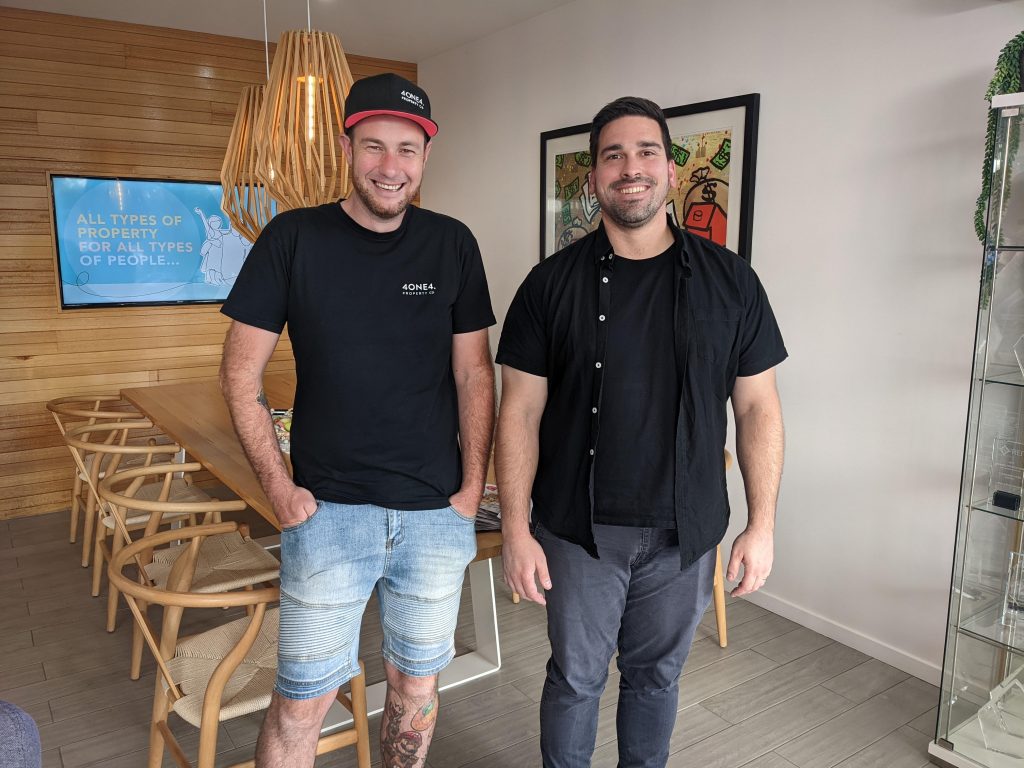
More than just making money, property investing for Chris is more about learning yourself. You discover your likes and dislikes, preferences, expectations, goals, and limits.
“You build your character and resilience. You also learn about the importance of relationships.”
Now that you have an idea and perhaps, a direction from a property investor’s perspective, we hope you’ll have a challenging yet fulfilling experience moving forward. If you encounter any bumps in the road, just reach out to our Team and we’ll willingly lend a helping hand.
Best of luck in your property investing journey!
